Coffee Garden-Coffea diversa Garden of Divisa Manor, Costa Rica
Professional coffee knowledge exchange more coffee bean information please follow the coffee workshop (Wechat official account cafe_style)
Costa Rica is located in Central America, where the climate and soil conditions are very suitable for the growth of coffee beans. Coffee has a history of more than 200 years. Today, Qianjie Coffee would like to introduce to you a manor growing a rare variety of coffee-Divisa Manor.
Divisa Manor Coffea diversa Garden
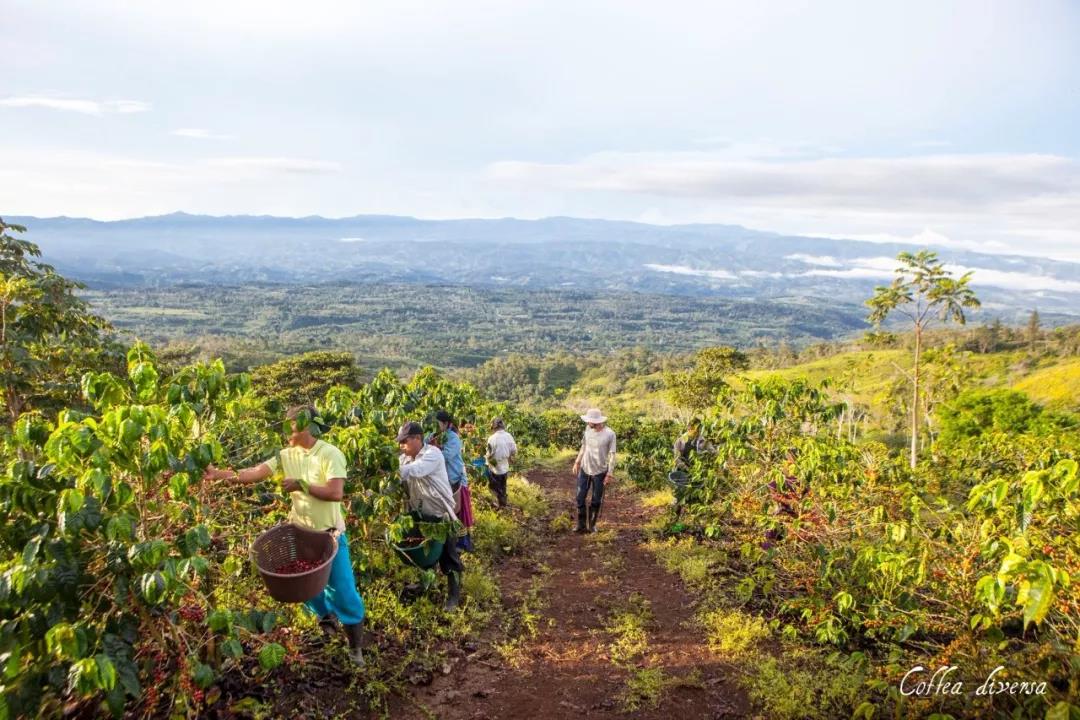
Few people should have heard of it, but it is located in a relatively remote part of Costa Rica, 1200-1300 meters above sea level, and is an area that traditionally does not produce coffee. Although the area has a good microclimate, soil and altitude, only a few people try to grow coffee there because it is geographically difficult to reach.
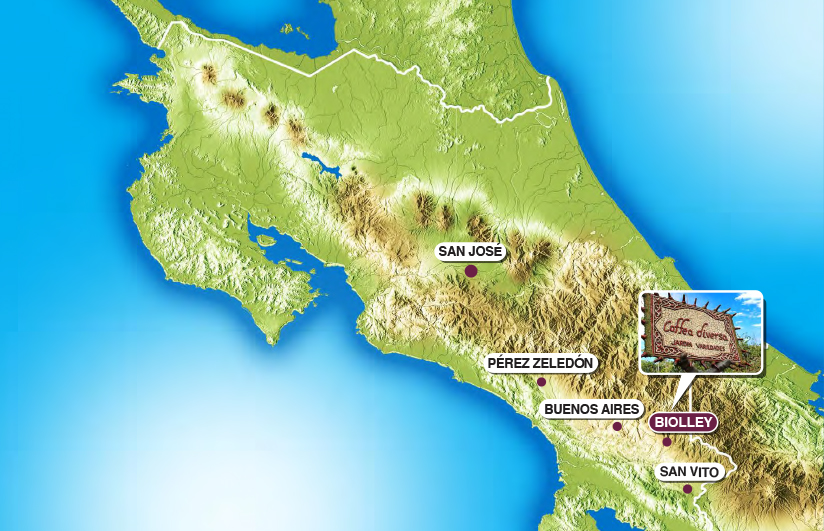
It is very close to the top of the Talamanca Mountains in La Amistad Park, which is affected by the climate of both the Atlantic and Pacific oceans, which makes the coffee unique.
Unlike most coffee farms, Divisa Manor is running a "coffee garden" business model. Unlike other manors that mainly grow bourbon, Kaddura, iron pickup, etc., there are many local and even exotic rare varieties and their varieties, with more than 700 coffee varieties, plant varieties, cultivated species and mutants. It is worth mentioning that most of the varieties grown here cannot be found anywhere else in the world, and this is the only place where rare varieties are grown commercially.
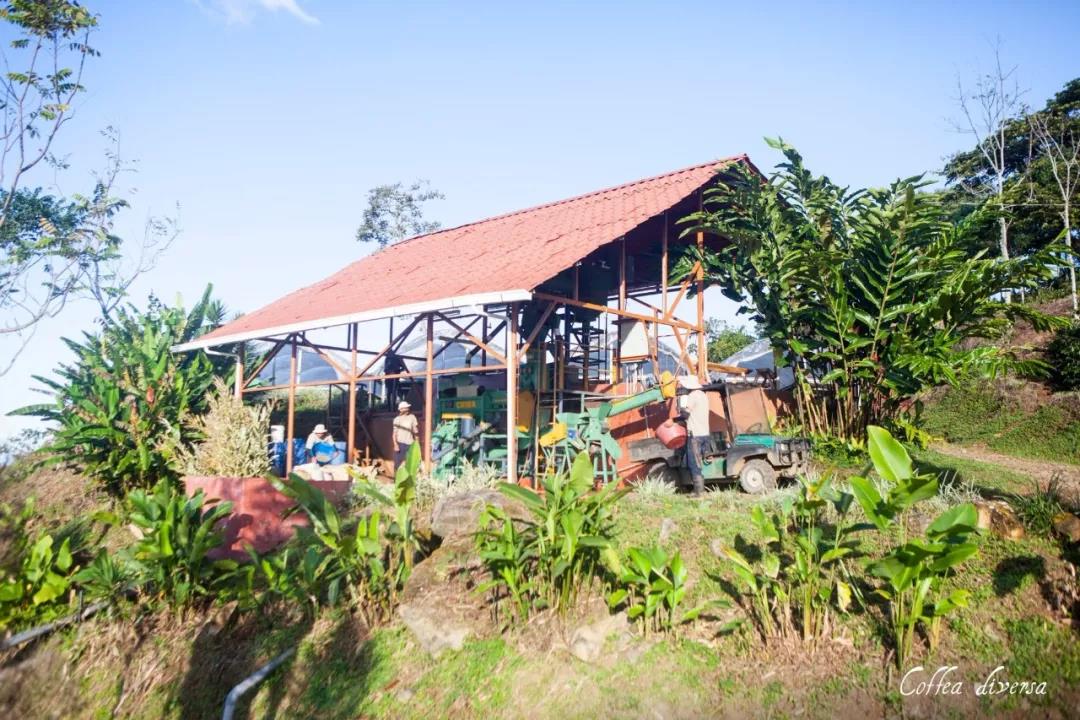
Mr. Gonzalo Hern á ndez, the owner of Divisa Manor, is a native of Costa Rica and has devoted his whole life to the coffee industry. he has worked in almost every field of the coffee industry, from coffee growing, processing and retailing to opening coffee shops, trading raw coffee beans and even roasting coffee.
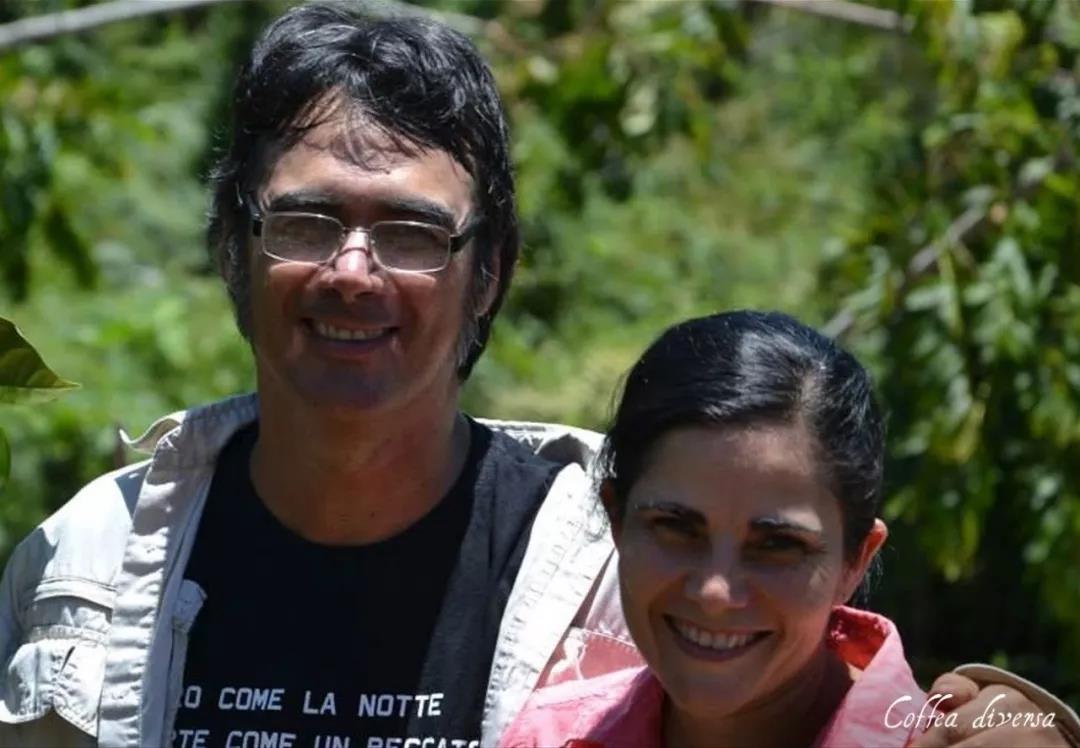
Like other Costa Rican children 40 years ago, Mr. Hern á ndez picked up coffee beans on Costa Rican coffee plantations during primary school holidays. Later he went to university in Costa Rica with an agronomy degree. After graduation, he worked in the largest bank in Costa Rica, providing loans and technical assistance to coffee farmers and coffee factories in southern Costa Rica.
Mr. Hern á ndez has worked in the coffee markets in Costa Rica, Guatemala and Jamaica, and was Chief Executive Officer of the Commercial Department of the Jamaican Coffee Industry Council from 2000 to 2003. It is worth mentioning that he also worked in the coffee retail business in the United States coffee chain. It can be said that he is very familiar with any link of the whole coffee industry chain.
Since 2003, Mr. Hernandez has been purchasing and trading the most unique, rarest and exotic coffee around the world. He owns the world's largest private collection of coffee plant varieties, categories and cultivars, Coffea diversa Garden, where he produces many rare varieties of coffee plants that are supplied to the world's most discerning importers and roasters of raw coffee beans.
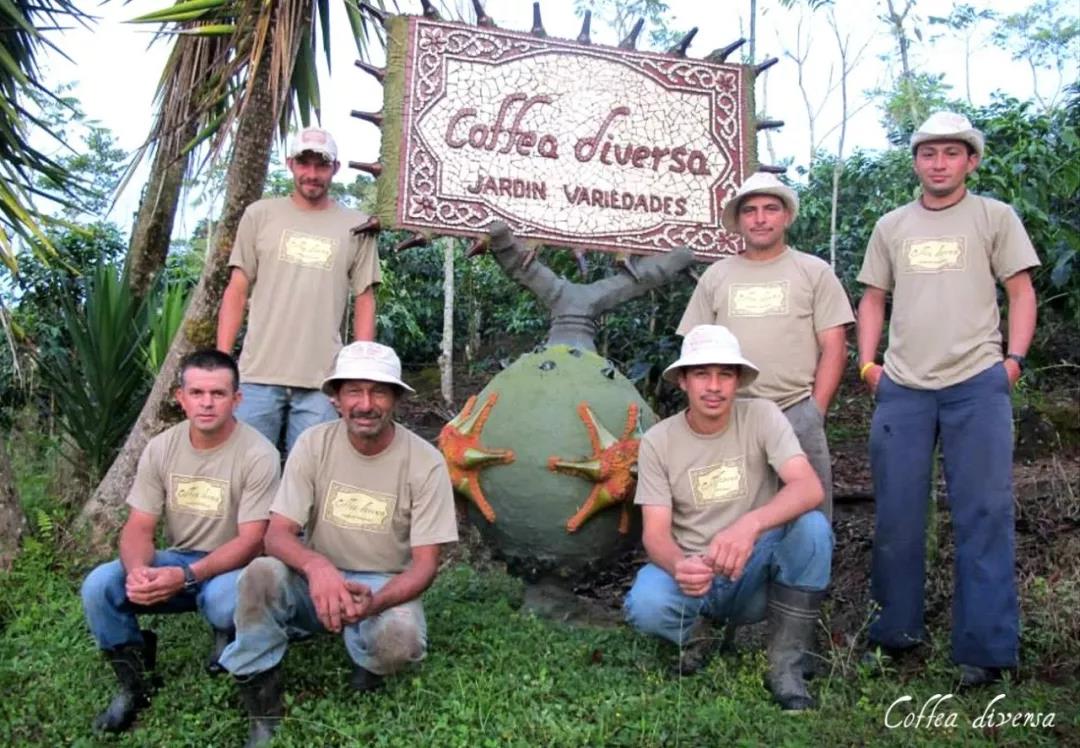
Qianjie Coffee comes to share with you a Dela Aiji washed from Divisa Manor.
The breed of Dila Aiji is also rarely heard of. DILLA ALGHE is a wild coffee from Ethiopia, hence its name because of its proximity to the town of Dilla Alghe. The tree is tall, with wide spacing between branches and buds, and young leaves or leaf tips are red, but the yield is very low and is sensitive to disease.
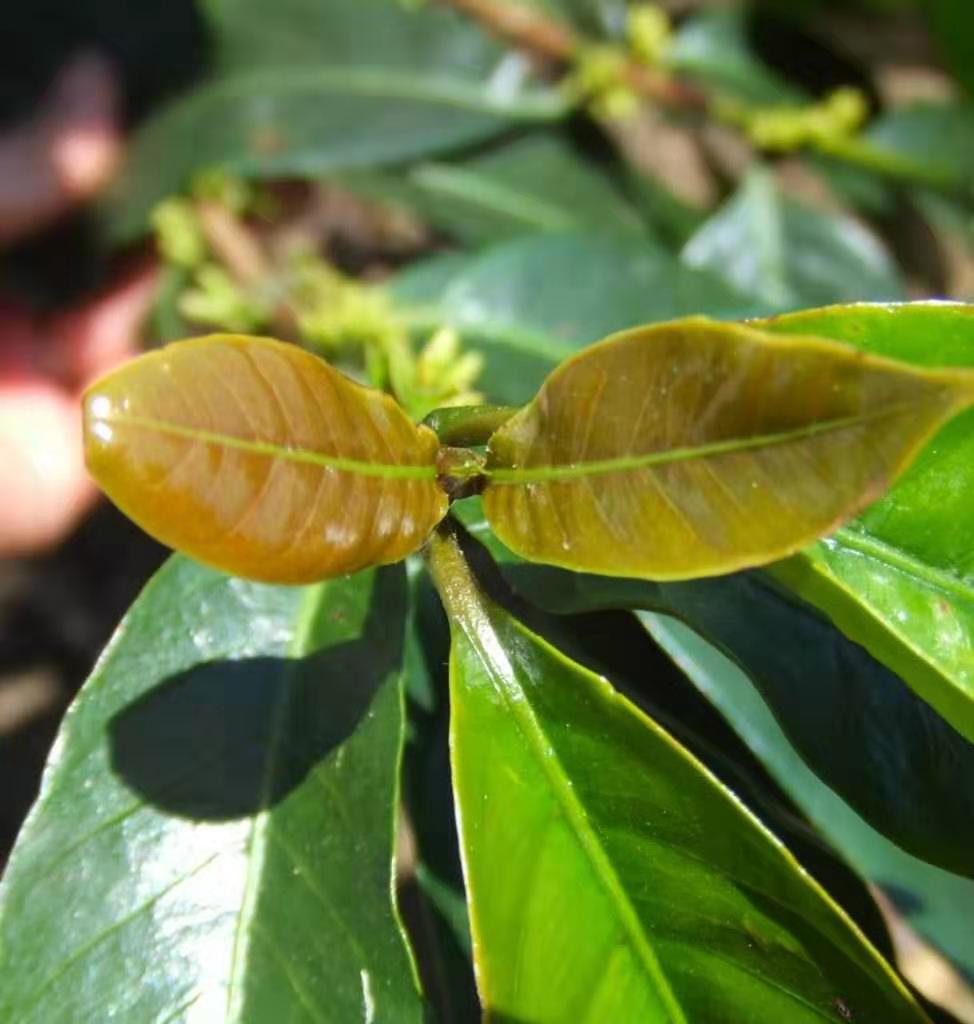
Observe the coffee cooked beans, the particles are medium size, the whole is relatively uniform.
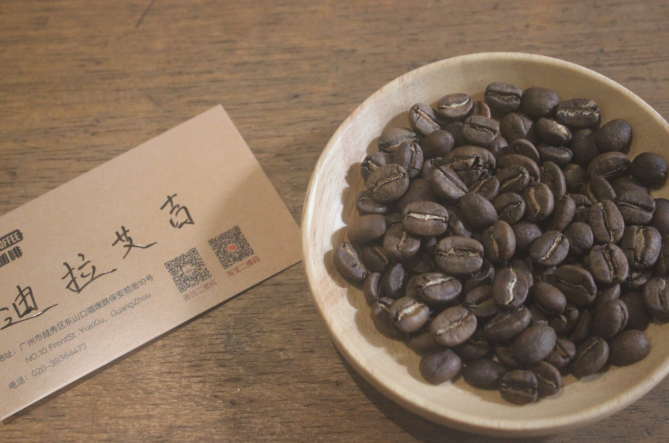
Qianjie Coffee shares brewing parameters and flavor:
Parameters: filter cup: Hario V60; water temperature: 89 ℃; powder quantity: 15g; ratio of powder to water: 1V16; degree of grinding: medium and fine grinding (BG 5T: Chinese standard No. 20 sieve pass rate 58%)
Flushing and cooking technique: segmented extraction. Steam with 30 grams of water for 30 seconds, small water flow around the circle to 124 grams for sectional injection, water level drop is about to expose the powder bed, continue to inject water to 240 grams to stop injection, and so on when the water level drop is about to expose the powder bed to remove the filter cup, (steaming starts timing) extraction time is 1 minute 39 percent 56 ".
Flavor: dry aromas of fermented fruit, berries and grapes, wet aromas of grapes and flowers, citrus, lemon tea and brown sugar on the palate.
END
Important Notice :
前街咖啡 FrontStreet Coffee has moved to new addredd:
FrontStreet Coffee Address: 315,Donghua East Road,GuangZhou
Tel:020 38364473
- Prev
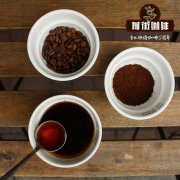
Why is ground coffee put at the end before extraction?
Professional coffee knowledge exchange more coffee bean information Please follow the coffee workshop (Wechat official account cafe_style) the barista determines the grinding size, water temperature and chalk used by a bean, which basically determines the taste of the coffee in the cup, not the effect of brewing itself on the coffee. Among them, grinding has a great influence on extraction, which is why it is the same as
- Next
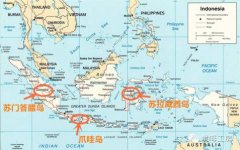
A brief analysis of the subtle relationship between Java Coffee and computer programming language Java?
Professional coffee knowledge exchange more coffee bean information please follow coffee workshop (Wechat official account cafe_style) Indonesia is an island country, located in the Indian Ocean, Indonesia has many islands, each of which is distributed on both sides of the equator line, among which Sumatra, Sulawesi and Java are the most famous, and they are also the best coffee producing areas in Indonesia.
Related
- Can lightly roasted coffee beans be used to extract espresso? How finely should you grind high-quality coffee beans to make Italian latte?
- What is the difference between the world's top rose summer coffee and Yejia Shefi? What are the flavor characteristics of Yega Shefi coffee and Panama rose summer?
- The ceremony is full! Starbucks starts to cut the ribbon at a complimentary coffee station?!
- A whole Michelin meal?! Lucky launches the new "Small Butter Apple Crispy Latte"
- Three tips for adjusting espresso on rainy days! Quickly find the right water temperature, powder, and grinding ratio for espresso!
- How much hot water does it take to brew hanging ear coffee? How does it taste best? Can hot water from the water dispenser be used to make ear drip coffee?
- What grade does Jamaica Blue Mountain No. 1 coffee belong to and how to drink it better? What is the highest grade of Blue Mountain coffee for coffee aristocrats?
- What are the flavor characteristics of the world-famous coffee Blue Mountain No. 1 Golden Mantelin? What are the characteristics of deep-roasted bitter coffee?
- Can I make coffee a second time in an Italian hand-brewed mocha pot? Why can't coffee be brewed several times like tea leaves?
- Hand-brewed coffee flows with a knife and a tornado. How to brew it? What is the proportion of grinding water and water temperature divided into?

